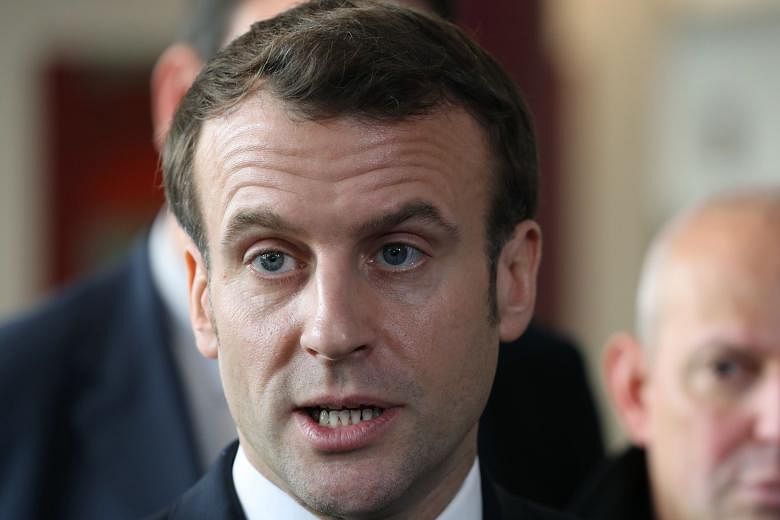PARIS • Three years after President Emmanuel Macron swept to power promising a "revolution", have French voters definitively soured on him?
The first round of the upcoming municipal elections is expected to test backing for Mr Macron's ambitious reform agenda, following a second winter of discontent marked by mass protests.
Polls show Mr Macron's four-year-old Republic on the Move (LREM) party is struggling ahead of the March 15 vote, which will be followed by a second round on March 22. The ballot comes amid a furore over the government's decision to force through unpopular pension reforms by decree.
The elections also follow the "yellow vest" rebellion of 2018-2019, which lifted the lid on the widespread anger in rural France against a leader seen by critics as the president of the rich.
The coronavirus epidemic - which has killed a dozen and infected hundreds in France - looms large over the vote. The government has ruled out postponing the elections but analysts have warned that fear of infection could be a big turn-off for polling station volunteers and voters alike.
Mr Macron, who is set to seek a second mandate in the 2022 polls, has attempted to downplay the significance of the vote for more than 500,000 councillors and nearly 35,000 mayors.
"I don't believe that people will vote for this or that candidate because they do or do not support the president," he told reporters in January.
But a fresh electoral setback, after the LREM finished behind the far-right National Rally in last year's European elections, would nevertheless show that "Emmanuel Macron's magic powers are no longer that magic", researcher Bruno Cautres, a lecturer at Sciences Po university in Paris, told Agence France-Presse.
The results will be closely watched for signs of whether Mr Macron's party of entrepreneurial political upstarts has managed to put down roots in the provinces.
"This election will be a precious indicator of the penetration of Macronism at the local level," said director Martial Foucault of the Cevipof research centre at Sciences Po university.
The signs for the party are inauspicious, with its candidates struggling in cities such as Paris and Lyon where it cleaned up in the parliamentary elections held after Mr Macron came to power in 2017.
"Municipal elections always bring failure for the ruling party... They have always been used to punish them," said political historian Jean Garrigues, a professor at the University of Orleans.
In a sign of its difficulty in recruiting candidates, the ruling party has presented lists in just one out of four towns with 10,000 or more inhabitants - a far cry from 2017 when dissident politicians from the left and right queued up to join Mr Macron's camp.
AGENCE FRANCE-PRESSE

